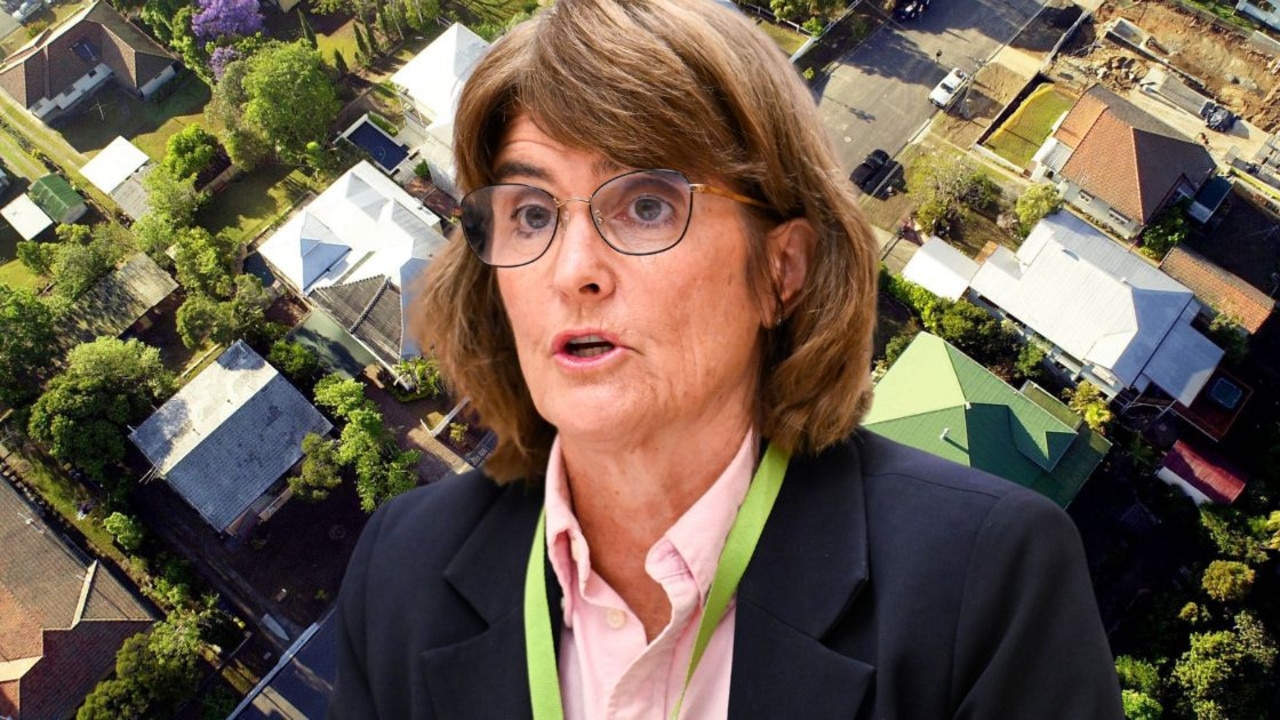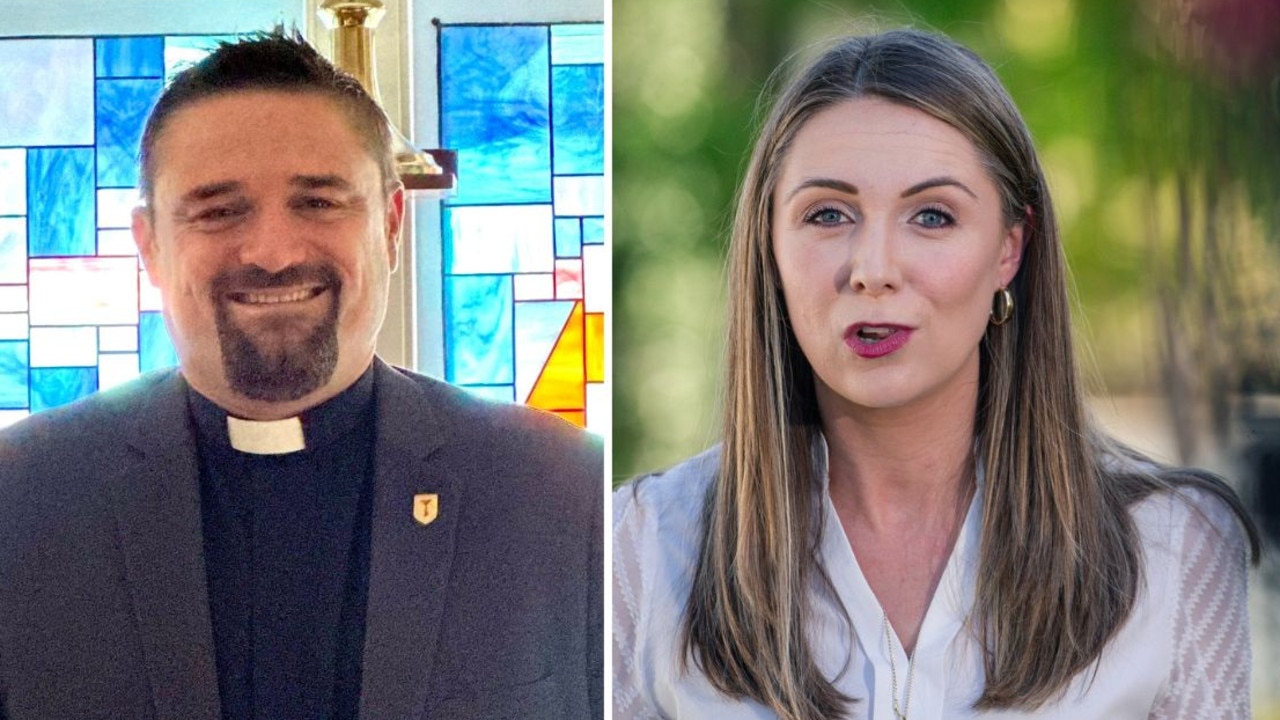Invictus Games showed the true meaning of sportsmanship
A WEEK of stunning competition at the Invictus Games has shown that the joy of winning medals is easily eclipsed by something much deeper – a special camaraderie forged by those who have beaten death, writes Grantlee Kieza.
CM Insight
Don't miss out on the headlines from CM Insight. Followed categories will be added to My News.
THE gold and silver medals made Brisbane army nurse Emma Kadziolka forget about her brain tumour for a while but the inspiring memories of camaraderie from the week-long Invictus Games that finish in Sydney tonight will stay with her forever.
The 29-year-old, who is based at the Enoggera Barracks, was Australia’s star competitor in the indoor rowing competition last Monday, defying the agony of the lactic acid build-up that makes indoor rowing more of a torture test than a sport.
Invictus Games: Mark Ormrod wins gold medal 45 minutes after learning breaststroke
UK swimmers Poppy Pawsey and Sarah Robinson won plenty of admirers at the Invictus Games
Redcliffe RSL support workers help get veterans to the Invictus Games
She placed first in the women’s four-minute endurance event and second in the one-minute sprint but was quick to explain that the medals were just a bonus at the Games which attracted more than 500 wounded, damaged or ailing soldiers from 18 countries.
“Invictus is really not about the medals,’’ she says. “It’s about getting out there and being part of the event. Everyone at the Games has won just by being on their team.
“A medal is welcome recognition for the hard work you’ve put in but everyone has their own goals and the sense of accomplishment really comes from participating.’’

Prince Harry, the Duke of Sussex, founded the Games in 2014 believing it could have a positive impact on wounded, injured and ill servicemen and women.
He officially opened the Sydney event last week, paying tribute to the “unconquered and optimistic generation” and said the Games were proof that the human spirit is “incredibly strong – that if you have the will you can really achieve absolutely anything’’.
In 2008 the young Prince was returning to the UK after a tour of duty as a helicopter pilot in Afghanistan. The transport aircraft taking him home also carried three badly injured British soldiers and the coffin of a young Danish servicemen.
He immediately wanted to do something for injured soldiers around the world.
“Invictus’’ is a Latin word for “unconquered’’ and the Sydney games have been a showcase of the indefatigable spirit of servicemen and women, including 72 Australians.
The first Invictus Games were held in London in 2014 with subsequent events in Orlando Florida in 2016 and Toronto last year.

Emma Kadziolka says that after the diagnosis of her benign brain tumour, competing in the Games allowed her to channel her energy into “something positive and beneficial’’ for maintaining her health and fitness with daily 4am training sessions before work.
Her fiancé David Mercer watched her win gold on Monday and described Invictus as an “amazing creation’’ that was saving people’s lives.
Emma’s joy at winning gold was amplified by seeing the crowd get behind “every competitor and not just the Aussies.’’
“Invictus is a testament to the character of all of the individuals involved,’’ she says. “The sense that we are all one team competing together trying to help each other.’’
She has seen the Invictus Games do wonders for soldiers suffering Post Traumatic Stress Disorder, a condition Prince Harry describes as those “invisible injuries’’ that are so profound.
On the same day Emma won gold, there was an extraordinary moment of teamwork and compassion at the wheelchair tennis.


The American doubles team took an early lead against a composite pairing known as “Unconquered’’. The match came down to a tie-breaker just as the whirring blades of a helicopter overhead sent British player Paul Guest, 54, into an agonising spin.
In 1987 he had toured Northern Ireland as a Navy serviceman with the English Armed Forces
but suffered injuries to his neck and spine resulting in partial deafness and visual impairment.
PTSD once made him feel “so useless’’, so paralysed physically and mentally, that his kids had to lift him in and out of the bath.
On Monday his Dutch playing partner Edwin Vermetten saw Guest’s tattooed face distort into a mask of anguish at the sound of the helicopter and rushed to help. He grabbed Guest by the shoulders and embraced him.
Vermetten made Guest look dead into his eyes and together they sang the song “Let It Go’’ from the Disney animated movie “Frozen’’.
Some spectators were reduced to in tears as the pair then powered to another win, though Guest said later: “It doesn’t matter where I come, the only thing that matters is as long as I have done better than yesterday, I have won.’’

The sense of camaraderie among competitors was further illustrated on Wednesday in a wheelchair rugby match between Australia and New Zealand.
Just before full-time in Australia’s victory, the home team passed the ball to Kiwi player George Nepata and made sure he got across the New Zealand goal line to huge cheers from the crowd.
Nepata was left a quadriplegic after being dropped on his neck during a training exercise in Singapore in 1989.
Townsville’s Michael Lyddiard, now 41, was part of the 3rd Reconstruction Task Force working in the Chora Valley in the south of Afghanistan in 2007 when a 6kg Taliban bomb blew away his right arm apart, along with his right eye, half his left hand, half his face and most of his hearing and sight.
One of the most high profile competitors at the Games, he told Insight that sport had put him in a place where he had to confront his weaknesses, had to accept the challenges that came with his rehabilitation and build a relationship with his emotions. He had to overcome anxiety and feeling abnormal.
“Through sport I gained a great sense of pride,’’ he says.

So it was for Pete Rudland and Garry Robinson, who just a week after surviving the furious 2010 battle of Shah Wali Kot – the most significant battle involving Australians since the Vietnam War – were among 15 elite commandos inside a Black Hawk helicopter as it sped across the Afghan terrain just metres above the ground toward a Taliban stronghold. The chopper clipped the ground, flipped over, broke apart and burst into flame.
Privates Tim Aplin from Brisbane and Scott Palmer from Darwin were killed instantly along with US serviceman Staff Sergeant Brandon Silk. Private Ben Chuck, from Yungaburra in North Queensland, died soon after from his wounds.
Almost every bone in Rudland’s body was shattered and he recovered in a Sydney hospital bed next to Robinson, a former member of the Australian triathlon team but whose left leg now required amputation. Robinson also suffered a traumatic brain injury, punctured lungs and eight fractured ribs.

Some of his old comrades had taken their own lives through depression and Robinson would spend most of his time at home sitting in his wheelchair with a blanket over his knees. Sometimes he would smash windows in frustration. During a physiotherapy session at Holsworthy Army Base, in Sydney, he heard about the Invictus Games.
Before long he felt 10 feet tall, inspired by the spirit of Invictus, with a sense of purpose, a sense of self and belonging.
As Prince Harry told the ABC program Australian Story on Monday, thousands of people now send him emails about the Invictus Games – people who have broken backs, who have broken collar bones and other debilitating conditions. They write in saying: “Thank you. I have just watched somebody who should be dead run the 100 metres and that has given me a whole new lease of life.”


